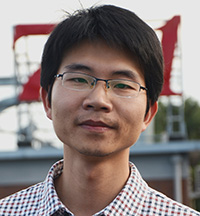The Presidential campaign for the May 2016 elections just kicked off in the Philippines. While all candidates pay greater attention to domestic issues such as poverty, employment, crimes and corruption, one major foreign policy concern that should top the agenda in the upcoming race is the country’s strategic relation with two competing world powers: China and the U.S.
Whoever becomes the next Philippine president has to deal with the “rock solid” security alliance of the Philippines with U.S. The Philippine Supreme Court’s recently declared the Enhance Defense Cooperation Agreement (EDCA) constitutional. This not only provides a strong legal backing for the alliance with the U.S., but also binds the next president to vigorously embrace it, especially in the context of China’s growing political and military presence in the South China Sea.
With the EDCA, Presidential candidates will no longer debate on why there is a need to increase presence of American troops rotating in the Philippines. The major debate will focus instead on reducing EDCA’s social costs, like the unintended violence against women resulting from issues like prostitution associated with American presence. Environmental concerns may also be raised as increasing U.S. military activities in the Philippines and may cause long-term damage to the country’s ecosystem, particularly in the eight initial locations offered by the Philippine government for use of American troops.
In these eight vital locations, the U.S. is allowed to build facilities inside Philippine bases to support American military activities in the country and the wider Asia-Pacific region. These activities include joint and combined military exercises, capacity building trainings, humanitarian assistance and disaster response, and maritime domain awareness, among others.
Most presidential candidates welcome American presence in the country because it provides deterrence from China’s assertive actions in the South China Sea. But China is very wary of EDCA and the subsequent increase of U.S. military presence in the Philippines because of Beijing’s long-standing fear of American containment.
China is still suffering from an acute paranoia of American military presence because of the concern that the U.S. is unnecessarily targeting them as a result of their current power rivalry. Philippine Presidential candidates are aware that the country is caught in the middle of this power struggle.
Thus, one of the most important issues for the next Philippine president will be how to effectively deal with China, particularly in the context of the territorial and maritime disputes in the South China Sea.
Given the reality of Philippine alliance with the U.S., will the next Philippine president repair the damaged relations with China?
There are two possibilities for the next Philippine administration to improve its ties with China.
First, Manila’s access to the China-led Asian Infrastructure Investment Bank (AIIB) provides opportunities for the Philippines and China to cooperate in economic fields. Strong cooperation in economic areas has a tendency to spillover to other areas of cooperation, until the habit of cooperation is strongly established. If the Philippines and China agree on the AIIB, both countries can build the necessary confidence to overcome their differences in the South China Sea disputes. This is essential in the creation of trust and the strengthening of bilateral ties.
Second, the result of Philippine international arbitration case against China can encourage the next Philippine administration to resume its bilateral talks with China. If the arbitration is resolved in favor of the Philippines, Manila will have leverage with Beijing. This will discourage China from hardening its position and making it more difficult for the Philippines to carry out activities in the contested areas.
However, if the next Philippine president decides to continue the excessive pro-Americanism of the current administration, repairing the damaged relations with China will be complicated. Excessive pro-Americanism can even exacerbate the already ailing political ties between Manila and Beijing.
The next Philippine president needs to have exceptional statecraft to balance the relations with China and the U.S. Like what other Southeast Asian leaders are doing, the next Philippine president must learn how to hedge with these two competing world powers in pursuance of Philippine national interests.


